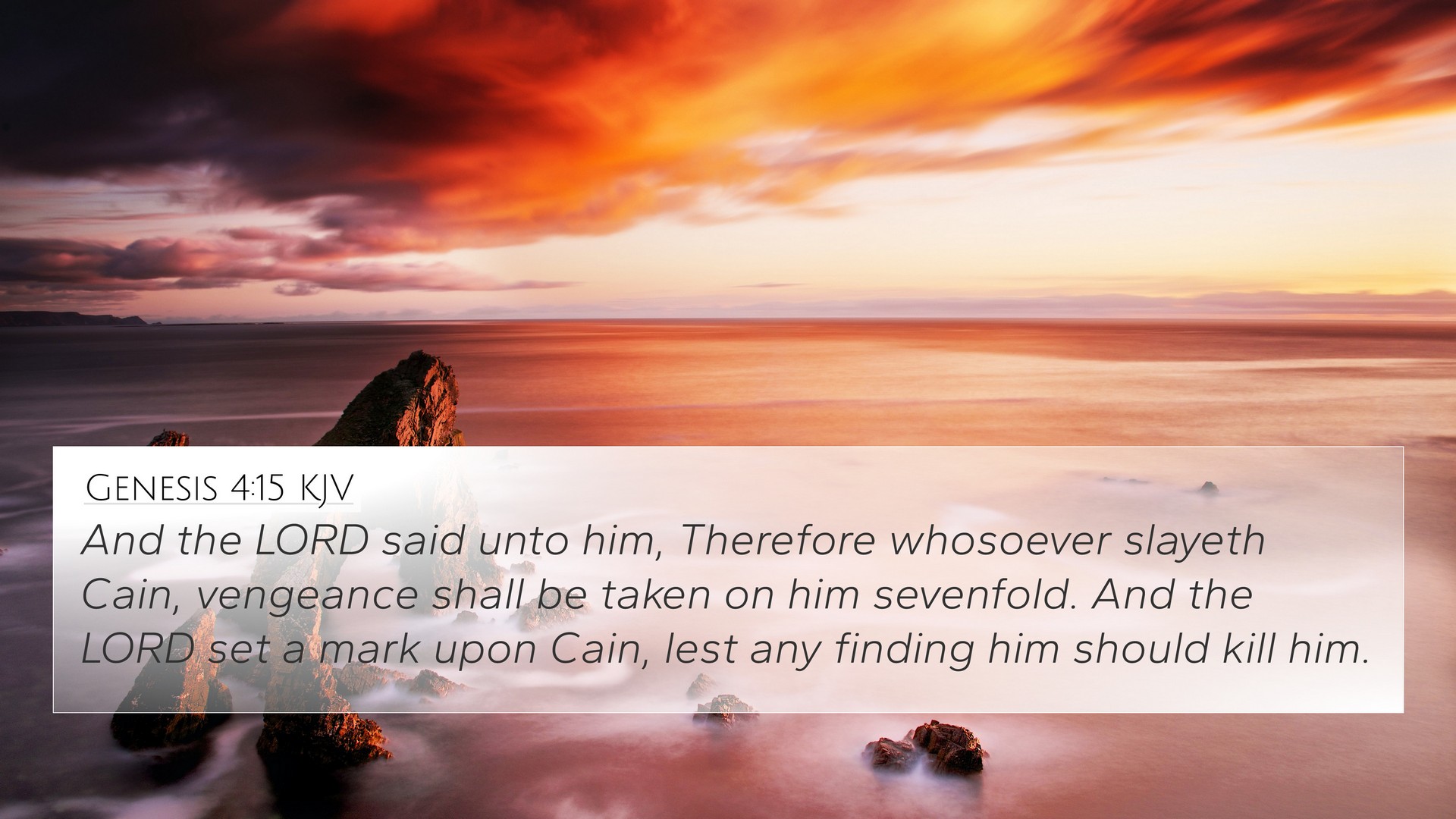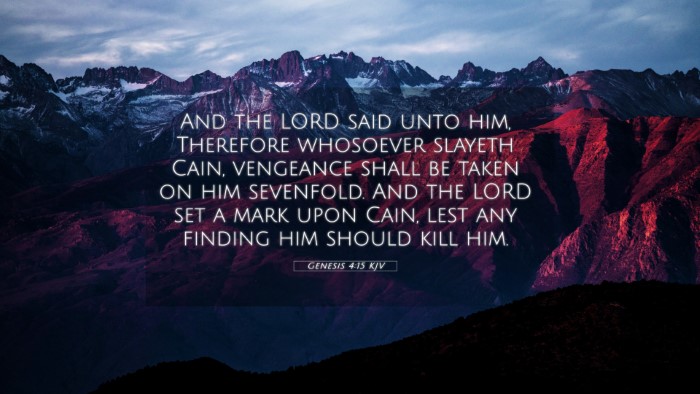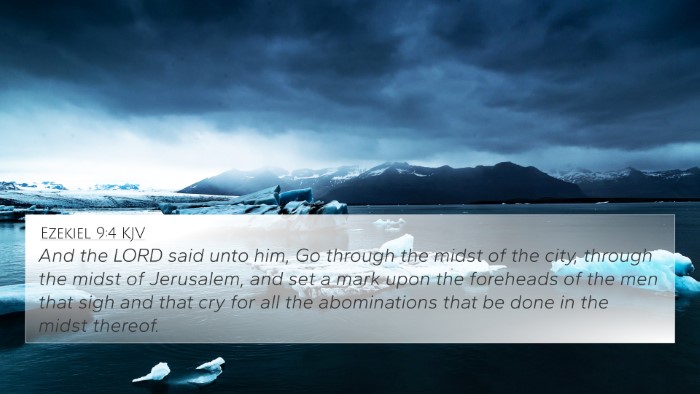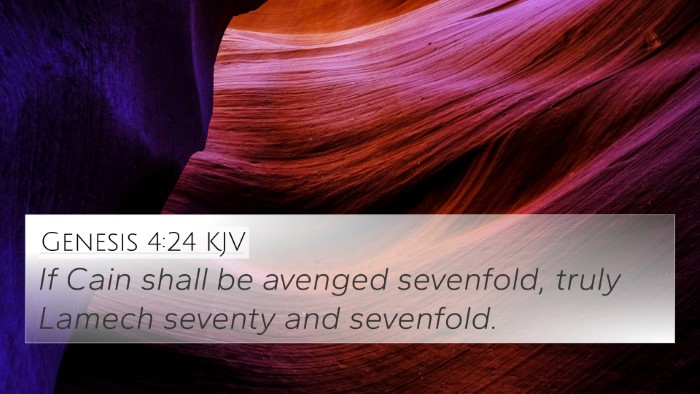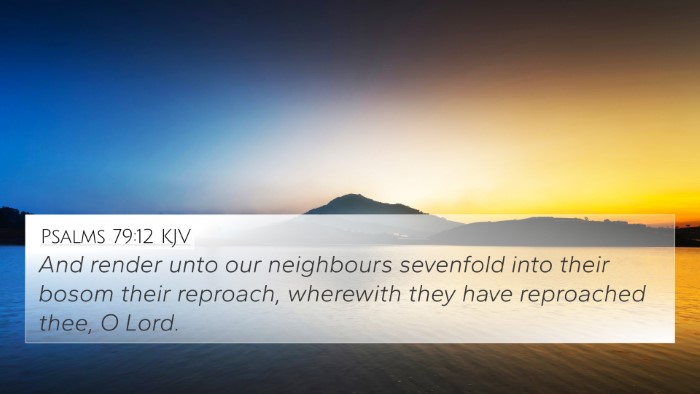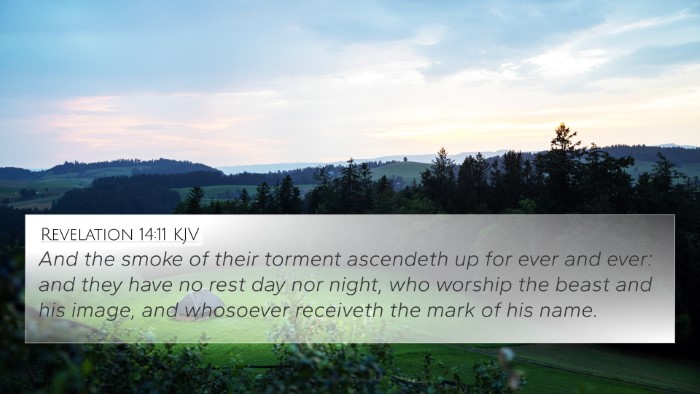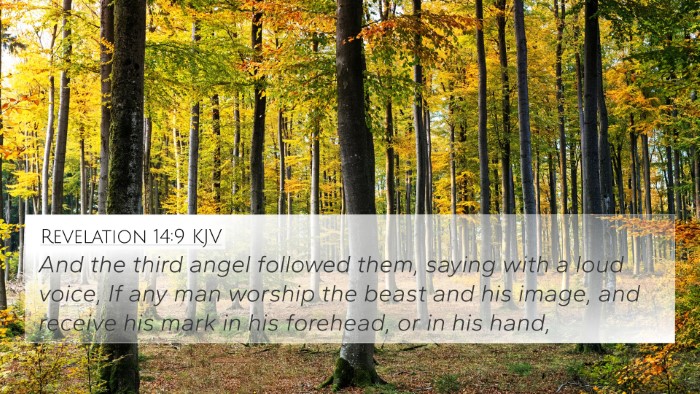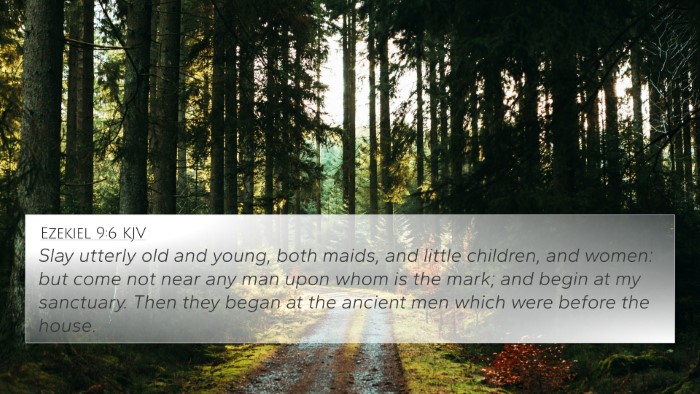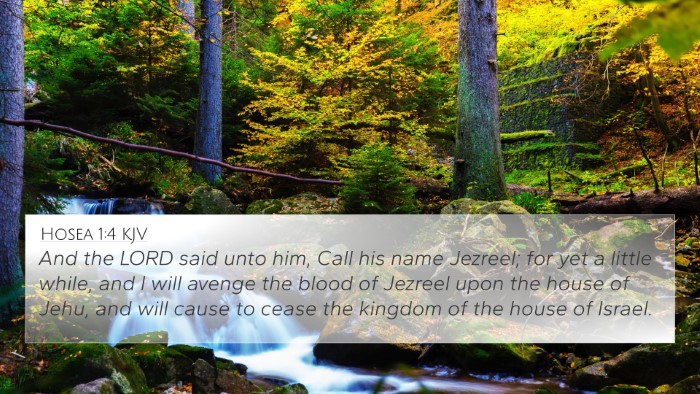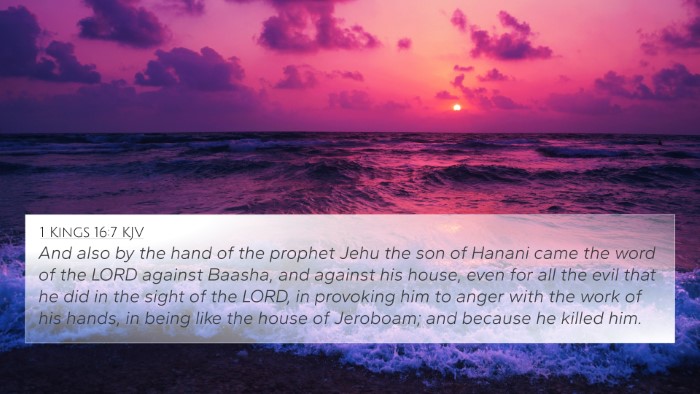Understanding Genesis 4:15
Genesis 4:15 states, "But the Lord said to him, 'Not so! If anyone kills Cain, he will suffer vengeance seven times over.' Then the Lord put a mark on Cain so that no one who found him would kill him."
This verse occurs in the context of the story of Cain and Abel, where Cain, after killing his brother Abel, fears for his life due to the repercussions of his actions. The verse reveals God's mercy and protection towards Cain despite his sin. Here, we explore the meaning and implications of this verse based on insights from public domain commentaries.
Commentary Insights
-
Matthew Henry:
Henry interprets this verse as a demonstration of God's justice tempered with mercy. Although Cain committed a grievous sin, God places a protective mark on him to prevent others from taking vengeance. This signifies that God's grace is available even in judgment, reflecting the theme of divine mercy.
-
Albert Barnes:
Barnes emphasizes that the mark on Cain serves as a sign of protection rather than punishment. It highlights the reality of human consequences for sin while illustrating God's desire to keep Cain alive, allowing for the possibility of repentance and change. This marks a significant point in biblical narrative where justice is intertwined with the opportunity for redemption.
-
Adam Clarke:
Clarke analyzes the nature of the mark placed on Cain, suggesting that it could have been a visible sign that indicated God’s protection. He posits that this mark represented a serious restriction on others toward Cain, showcasing God’s sovereign right to judge and protect his creation according to his divine will.
Thematic Connections
This verse can be cross-referenced and connected to several other significant biblical texts, emphasizing themes of justice, mercy, and protection. Below are some related Bible verses:
- Genesis 9:6: "Whoever sheds human blood, by humans shall their blood be shed..." - This verse discusses the principle of justice, reflecting on the severity of murder.
- Exodus 21:12: "Anyone who strikes a person with a fatal blow is to be put to death." - The law on punishment reveals societal views on justice in relation to murder.
- 1 John 3:12: "Do not be like Cain, who belonged to the evil one and murdered his brother..." - This New Testament cross-reference highlights the moral implications of Cain's actions.
- Romans 12:19: "Do not take revenge, my dear friends, but leave room for God's wrath..." - This verse emphasizes trust in God for justice rather than human retaliation.
- Psalm 37:28: "For the Lord loves the just and will not forsake his faithful ones..." - God's faithfulness to protect the righteous aligns with the protective aspect seen in Genesis 4:15.
- Matthew 5:38-39: "You have heard that it was said, ‘Eye for eye, and tooth for tooth.’ But I tell you, do not resist an evil person..." - This further develops the concept of mercy and reprisal in Christian teachings.
- Luke 10:30-37: The Parable of the Good Samaritan illustrates mercy and compassion, resonating with God's protective nature toward Cain.
Practical Implications
Genesis 4:15 encourages readers to reflect on the balance of justice and mercy in their interactions. It illustrates that God's grace can be extended even to those who have wronged others, a theme central to Christian doctrine. The protective mark on Cain symbolizes the hope for redemption and the possibility of change even after grave sins.
Cross-referencing Insights
Tools for Bible cross-referencing can deepen your understanding of Genesis 4:15 and its themes. Through employing a Bible concordance or a cross-reference Bible study, one can explore thematic connections and inter-Biblical dialogues aimed at understanding how mercy and justice play out throughout scripture.
Conclusion
As we engage with Genesis 4:15, we see a profound narrative wherein divine mercy meets human failings. This verse serves not only as an insight into God's character but also as a call for deeper reflection on our relationships with others, urging us toward compassion, understanding, and the recognition of divine justice.
Keywords Used:
- Bible verse cross-references
- Connections between Bible verses
- Linking Bible scriptures
- Comparative Bible verse analysis
- Bible verses that relate to each other
- Cross-referencing Biblical texts
- Thematic Bible verse connections
- Bible verse parallels
- Scriptural cross-referencing
- Inter-Biblical dialogue
